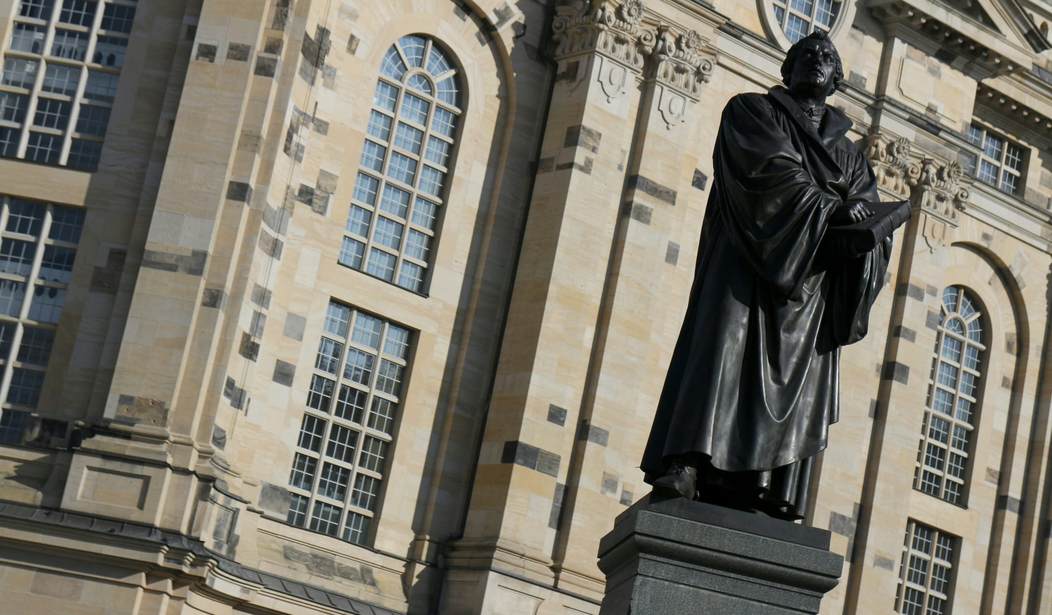This year marks the 500th anniversary of the Protestant Reformation. Posting his ninety-five theses in October of 1517, Martin Luther issued challenges to several Roman Catholic doctrines. Over the next few generations, Protestant denominations formed and the schism with Rome was completed. For many, the Reformation is old history. But for over 250 Protestant scholars and leaders who signed the “Reforming Catholic Confession,” the Reformation isn’t just history — it’s ongoing.
The stated purpose for the “Reforming Catholic Confession” is that:
One of the best ways to commemorate the Reformation is to remember the Reformers’s original vision for Catholic unity under canonical authority. This original vision has sometimes been forgotten not only by the heirs of the Reformation, but also by its critics, who often fixate on the divisions within Protestantism. Thus, a number of leaders from across the Protestant spectrum have come together to honor the original vision of the Reformers by demonstrating that, despite our genuine differences, there is a significant and substantial doctrinal consensus that unites us as “mere Protestants.”
The Confession itself concisely defines what Protestants across denominational boundaries believe about key aspects of theology. It begins with the words:
The Reforming Catholic Confession
What we, Protestants of diverse churches and theological traditions, say together
“We believe”
The Confession then launches into an explanation about each of these twelve points
- Triune God
- Holy Scripture
- Human Beings
- Fallenness
- Jesus Christ
- The Atoning Work of Christ
- The Gospel
- The Person and Work of the Holy Spirit
- The Church
- Baptism and the Lord’s Supper
- Holy Living
- Last Things
I don’t have space to detail all twelve categories (I encourage you to read the Confession by clicking here). The point about the atoning work of Christ may be of special interest, though, since it speaks directly to the original Reformers’ concern about how the Roman Catholic Church believes atonement to be mediated. The “Reforming Catholic Confession” says:
That God who is rich in mercy towards the undeserving has made gracious provision for human wrongdoing, corruption, and guilt, provisionally and typologically through Israel’s Temple and sin offerings, then definitively and gloriously in the gift of Jesus’ once-for-all sufficient and perfect sacrificial death on the cross (Rom. 6:10; 1 Pet. 3:18) in the temple of his human flesh (Heb. 10:11-12). By his death in our stead, he revealed God’s love and upheld God’s justice, removing our guilt, vanquishing the powers that held us captive, and reconciling us to God (Isa. 53:4-6; 2 Cor. 5:21; Col. 2:14-15). It is wholly by grace (sola gratia), not our own works or merits, that we have been forgiven; it is wholly by Jesus’ shed blood, not by our own sweat and tears, that we have been cleansed.
Many people probably wonder at the need for another document detailing the theological differences between Protestants and Catholics. Anticipating questions, the signees have prepared a lengthy explanation which can be read here. Under the first point, the signees recognize that,
On the eve of the 500th anniversary of the Reformation, however, the narrative that prevails in some quarters focuses on its supposed negative consequences, including secularization, radical individualism, skepticism and, most notably, schism. According to this telling of the story, Protestants necessarily prove to be dividers, not uniters.
They end that section with the expressed hope that “We therefore aim to celebrate the catholic impulse that lies at the heart of the earlier Reformation even as we hope and pray for ever greater displays of our substantial unity in years to come.”
The Reforming Catholic Confession is a robust document that articulates well the divide between Protestants and Roman Catholics. Confessing Protestants who take theology seriously will find this document both interesting and reassuring. The Protestant Reformation is still bearing fruit, and the truths of God’s Word are still being defended.









Join the conversation as a VIP Member